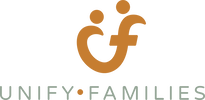
Individual, Parent, & Family Therapy
FINDING OUR WAY BACK TO REGULATION
There is hope. We can learn how to find our way back to regulation. With support in accessing safety and security in our nervous system, we can experience:
greater ease in navigating life’s challenges
more contentment in ourselves
increased connection in our relationships
When we look back on our lives, these are the things that will be the most important and meaningful.
Whether you’re looking for individual, parent or family therapy, we’ll use approaches designed to help you find your way back to regulation. From a more regulated place you will be able to access healing strategies that can rewire neural networks in your brain, allowing for greater clarity and connection within yourself and with loved ones.
Finding our way back to regulation is the number one, most significant skill we can learn in life. It benefits not only our mental health and family relationships, but also our physical health, our work, and our communities.
Our nervous system is moving through states of regulation and dysregulation all the time. One minute we’re driving along in our car singing to our favorite playlist and feeling pretty good about things. Then we get an angry-toned text from a loved one and immediately we move into a defensive and activated nervous system state. Shifting into dysregulated nervous system states is an automatic, biological process. By nature, it is intended to be a brief autonomic experience of mobilizing activation (fight or flight) or immobilizing collapse (feign death) until we’re out of immediate danger.
But many of us are finding we’re spending more time feeling dysregulated, without much respite. We may feel stuck in our distressed emotions, not able to see a path to feeling better.
Brooke is adept at creating a therapeutic environment where clients feel seen, supported, and safe.
Clients have come to Brooke wanting help with things like:
parenting struggles with a child, preteen/teen, or young adult
relationship distress
grief and loss
family conflict
processing trauma
life transitions
